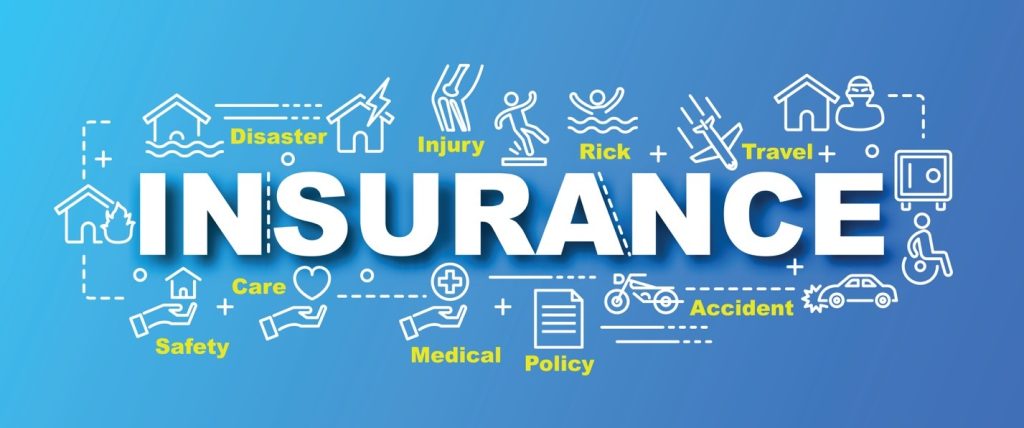Buying an insurance policy is only the first step in protecting yourself against risks. The true test of an insurance company comes when you file a claim. In Kenya, many policyholders have insurance but are unsure of how the claims process works or what is required of them. This often leads to delays, frustrations, and in some cases, denied claims.
This article will break down the insurance claims process in Kenya step by step, explain the documentation you need, highlight common challenges, and share tips to make sure your claim is paid smoothly.

⸻
What is an Insurance Claim?
An insurance claim is a formal request by a policyholder to their insurance company asking for compensation for a covered loss or event. It is the point where the promises in your insurance policy are tested.
For example:
- If your car is involved in an accident, you file a motor insurance claim.
- If you’re hospitalized, you file a health insurance claim.
- If your property is damaged by fire, you file a property insurance claim.
In short, the claims process is how you get value from the policy you’ve been faithfully paying premiums for.
⸻
Step-by-Step Process of Filing a Claim in Kenya
While the process can vary depending on the type of insurance (motor, health, property, life), most claims in Kenya follow these general steps:
1. Report the Loss Immediately
- Notify your insurer or broker as soon as the incident happens.
- For motor accidents, also report to the police within 24 hours.
- Timely reporting helps avoid disputes and shows good faith.
2. Fill Out a Claim Form
- The insurer will give you a standard claim form to fill in.
- Provide accurate details of the incident — date, time, location, and nature of loss.
- Avoid exaggeration or false statements, as this may lead to rejection.
3. Submit Supporting Documents
Depending on the claim type, documents may include:
- Motor insurance: Police abstract, copy of driving license, logbook, and photos of the accident scene.
- Health insurance: Hospital admission notes, medical reports, discharge summary, invoices.
- Property insurance: Fire brigade report, valuation reports, invoices, and photos of damage.
4. Assessment and Investigation
- The insurer may send a loss adjuster or assessor to inspect the damage.
- In health cases, insurers often verify bills with hospitals.
- This step ensures the claim is genuine and within policy terms.
5. Claim Review
- The insurer reviews your documents, policy coverage, and exclusions.
- If everything checks out, the claim moves to approval.
- If not, they may request additional documentation.
6. Settlement
- Once approved, the insurer pays the claim.
- Payment can be made directly to the policyholder (e.g., property claims) or to third parties like garages or hospitals.
7. Dispute Resolution (If Needed)
- If your claim is rejected or delayed unfairly, you can escalate the matter to:
- The Insurance Regulatory Authority (IRA) in Kenya.
- The Insurance Complaints Resolution Committee.
- Ultimately, the courts if necessary.
⸻
Common Challenges in Insurance Claims in Kenya
- Delayed Settlements
- Many policyholders complain of insurers taking too long to pay.
- This usually happens due to incomplete documentation or slow investigations.
- Denied Claims
- Claims can be rejected if the incident is outside coverage, excluded, or if the policyholder violated terms.
- Example: driving under the influence during an accident.
- Lack of Awareness
- Many Kenyans don’t know the documents required, leading to unnecessary back-and-forth with insurers.
- Fraudulent Claims
- Fake medical bills, staged accidents, and exaggerated losses are common.
- Insurers are strict in investigations, and fraud can lead to criminal charges.

⸻
Tips for a Smooth Claims Process in Kenya
- Read Your Policy Carefully: Understand what’s covered, what’s excluded, and the claim conditions.
- Report Promptly: Notify your insurer and the police (where applicable) immediately.
- Keep Records: Always keep receipts, invoices, and photos related to your insured property.
- Be Honest: Provide truthful information to avoid complications.
- Work With Your Broker: If you bought through a broker, let them assist you in claim follow-up.
- Follow Up: Don’t sit and wait—politely check the status of your claim regularly.
⸻
Real-Life Scenarios
- Motor Insurance:
Peter is involved in a minor accident on Thika Road. He reports to the police within 24 hours, submits his abstract and photos to his insurer, and within two weeks, his car is repaired at an approved garage. - Health Insurance:
Jane is admitted at Aga Khan Hospital. The hospital sends her bills directly to her insurer. Since her policy has inpatient cover, the insurer pays the hospital directly. Jane only pays for non-covered items like toiletries. - Property Insurance:
Omondi’s shop in Kisumu suffers a fire. He submits a fire brigade report, photos, and invoices of lost stock. The insurer sends an assessor, values the loss, and settles within a month.
⸻
The Role of the Insurance Regulatory Authority (IRA)
The IRA in Kenya plays a critical role in ensuring insurers handle claims fairly. If your insurer delays or denies a claim without valid reasons, you can lodge a complaint with IRA for intervention. This gives policyholders a safety net against unfair practices.
⸻
Final Thoughts
In Kenya, understanding the claims process is just as important as buying the policy itself. Filing a claim may feel overwhelming, but if you know the steps, keep your documents ready, and follow procedure, the process becomes much smoother.
Remember, insurance is not just about paying premiums—it’s about securing peace of mind when life’s uncertainties strike. The next time you need to file a claim, don’t panic. Follow the right steps, be honest, and keep your insurer accountable.
That’s how you turn an insurance policy from just paperwork into real financial protection.
